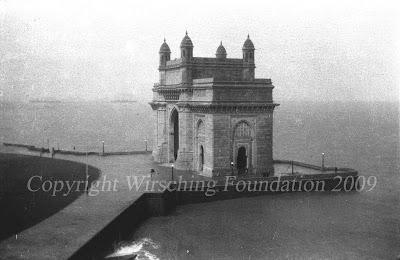Oh Bombay! The city by the sea was more than a place to live. It was an idea, a concept, a symbol of a newly independent country, India. India was conglomerate of tens of languages and dialects, religions, races, ideologies, cuisines, dietary preferences, and stages of human development. Though the western world and the middle eastern empires referred to the land east of the Indus as Hindustan, Hind, Indes, Indische, Indien and India; in practise it was never a single nation for large parts of history. The largest empire founded by Chandragupta Maurya and taken to its zenith by Ashoka did not include parts of south and east India. When the last empire builders, the British, realized they could no longer control it, the people of India decided (in most part) to forge a nation. Even though section of the Muslim population decided that they would not feel safe in a democratic nation and would prefer to live in a majority of their own, the Indian nation decided that they would form a secular democracy where every person irrespective of caste, religion and sex could vote.
A disparate nation as India needed a city where every Indian could feel at home. Bombay best suited this need, as it was a city of limited history. Rarely even mentioned as a geographic area till the Portuguese, who were the current overlords handed it over to the British as dowry, it went on to become the commercial capital of British India. Though the seven islands and the neighboring areas had a population of Kolis who made their living by fishing or agriculture, the city was formed and developed by people from all over the country. Today the Kolis are marginalized as a political power and some of the politicians of Maharashtra claim Bombay as their exclusive preserve. But Bombay had never played an important part in the Maratha confederacy.
Until 1960 Bombay city was the capital of Bombay province which included much of present day Maharashtra and Gujarat. But Bombay was forged by Marathi, Gujarati, Parsee, Marwari, Punjabi, Sindhi, Tamil, Kanadiga, Jewish, Irani, and a whole lot of other Indians. Bombay became India's city Number 1 because she belonged to nobody and everybody. You did not resent the fact that your neighbour was from Tamil Nadu, Kerala, Sindh or Bengal. Rather you enjoyed Dosas, Meen Moili, Pappad and Misti doi in their homes and celebrated Pongal, Onam, Cheti Chand and Durga Puja with them. On Holi day Southies who could not comprehend why the Northies painted each other, enjoyed smearing a bit of Gulal on their neighbour's gals. And Of course everyone celebrated the most sarvajanik of Bombay's festivals, Ganapati. The elephant headed one, welcome everybody into his pandal and guarded over the city. What could be more cosmopolitan than the pandal and sound system for the Ganesh Utsav in my area were provide by a gujarati Muslim, Christians participated in aartis, and Parsees sponsored one of the day's prasads.
The hotch-potch community fostered a spirit that ensured that city would overcome torrential rains and neighbours helped each other in times of need. But this sense of community began decaying when Bombay was made the capital of a linguistic based state and accelerated when the Shiv Sena graduated from being a lumpen force of thugs for hire into a legitimate political party. Suddenly Indians started to feel as outsiders in their homes. The cancer metastasized when the name was changed to Mumbai in 1995 after the first large scale riots in 1992.
Since then I feel the city is like a patient, weakened by Chemo and kept alive by expensive drugs that money can buy. Its like a bulding whose pillars have been damaged by some of its residents, and propped up by make-shift columns, but the people cannot move because there is no where else to go. No other city can claim to have the ethos of Bombay.
So this blog is dedicated to the memories of Bombay and the hope that someone somewhere in India can create a city that would have all the good elements of Bombay. A truly Indian city; where once again people will stand in queues for their turn; cars will stick to their lane; the police force will be ace detectives that can solve 95% of crimes and not be glorified gurkhas to criminal politicians, people will revel in the diversity and opportunity to explore new cultures, languages, ideas and cuisines. In short a New Bombay!
Wednesday, April 17, 2030
Subscribe to:
Post Comments (Atom)

No comments:
Post a Comment